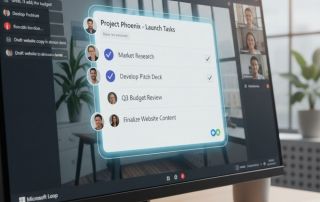Russia now has its own Internet
The internet is free and the knowledge of the world belongs to everyone? This is by no means the case, because not only clear dictatorships like North Korea regulate what information is available to citizens in your country on the Internet. Russia now also has a new law to monitor and control the Internet more closely. The whole thing has been called “Law on the Sovereign Internet” since November 1, 2019
Although the term “sovereign” may not sound as drastic as our NetzDG (Network Enforcement Act), the sovereignty is not only meant to mean independence, but according to the writers of the law also protection against dangerous content. So one may ask how “dangerous content” will be defined in the future, and whether this is not more a question of censorship.
Russia now has its own Internet
The internet is free and the knowledge of the world belongs to everyone? This is by no means the case, because not only clear dictatorships like North Korea regulate what information is available to citizens in your country on the Internet. Russia now also has a new law to monitor and control the Internet more closely. The whole thing has been called “Law on the Sovereign Internet” since November 1, 2019
Although the term “sovereign” may not sound as drastic as our NetzDG (Network Enforcement Act), the sovereignty is not only meant to mean independence, but according to the writers of the law also protection against dangerous content. So one may ask how “dangerous content” will be defined in the future, and whether this is not more a question of censorship.
Internet surveillance begins with the blocking of sites
The freedom that the Russians had to miss in parts in the offline world has now been extended to the online world with the new law. And so all Internet providers will have to use filter technologies in the future to completely block websites, but also to give the state the opportunity to monitor data.
In this way, it is also quite conceivable that specific websites, for example, are locked out before elections in order to make information from abroad no longer accessible to citizens. The past has even shown that this approach is real with the mobile Internet. When thousands of Muscovites took to the streets in July 2019 to protest for free elections, ATMs in the city centers suddenly stopped working and mobile internet was turned off at 3G and LTE frequencies. The providers later justified the functional failure with an overload of the network, but later it turned out that a shutdown actually took place to prevent the exchange of information.
The blocking of websites will probably only be the beginning, which is legitimized by the “Law on the Sovereign Internet”. Because that would mean “only” censorship. Rather, it is possible to completely monitor, manipulate and prevent the Internet and the transmitted information.
This would be a step closer to the surveillance state as it is already a reality in North Korea and China. Currently, a VPN network can still be blocked by simply moving its location virtually to another country and at the same time encrypting the transmitted and received data. However, it should only be a matter of time before all IP addresses used by VPN providers are blocked or their services are no longer allowed to be offered in Russia.
The fact that censorship and information control on the Internet are not new, and even in actually free democracies are common practice should not be a secret. And so in Germany at the latest with the NetzDG (Network Enforcement Act) censorship is already taking place in social networks and on streaming platforms such as YouTube. And it is not uncommon for the algorithm used to shoot past the target and to operate it overblocking.
The Internet is both a curse and a blessing, and in addition to great opportunities and opportunities, there are also many dangers in some areas. Nevertheless, we believe that the knowledge of the world belongs to humanity. This is the only way for peoples to develop and connect freely. However, this will probably remain a dream that will develop in the opposite direction, as the tension in the world tends to worsen rather than relax in many regions. And the easiest way to manipulate people is to let them know what they should know.
We will definitely continue to watch closely, and also report on how the situation is developing.
Internet surveillance begins with the blocking of sites
The freedom that the Russians had to miss in parts in the offline world has now been extended to the online world with the new law. And so all Internet providers will have to use filter technologies in the future to completely block websites, but also to give the state the opportunity to monitor data.
In this way, it is also quite conceivable that specific websites, for example, are locked out before elections in order to make information from abroad no longer accessible to citizens. The past has even shown that this approach is real with the mobile Internet. When thousands of Muscovites took to the streets in July 2019 to protest for free elections, ATMs in the city centers suddenly stopped working and mobile internet was turned off at 3G and LTE frequencies. The providers later justified the functional failure with an overload of the network, but later it turned out that a shutdown actually took place to prevent the exchange of information.
The blocking of websites will probably only be the beginning, which is legitimized by the “Law on the Sovereign Internet”. Because that would mean “only” censorship. Rather, it is possible to completely monitor, manipulate and prevent the Internet and the transmitted information.
This would be a step closer to the surveillance state as it is already a reality in North Korea and China. Currently, a VPN network can still be blocked by simply moving its location virtually to another country and at the same time encrypting the transmitted and received data. However, it should only be a matter of time before all IP addresses used by VPN providers are blocked or their services are no longer allowed to be offered in Russia.
The fact that censorship and information control on the Internet are not new, and even in actually free democracies are common practice should not be a secret. And so in Germany at the latest with the NetzDG (Network Enforcement Act) censorship is already taking place in social networks and on streaming platforms such as YouTube. And it is not uncommon for the algorithm used to shoot past the target and to operate it overblocking.
The Internet is both a curse and a blessing, and in addition to great opportunities and opportunities, there are also many dangers in some areas. Nevertheless, we believe that the knowledge of the world belongs to humanity. This is the only way for peoples to develop and connect freely. However, this will probably remain a dream that will develop in the opposite direction, as the tension in the world tends to worsen rather than relax in many regions. And the easiest way to manipulate people is to let them know what they should know.
We will definitely continue to watch closely, and also report on how the situation is developing.
Popular Posts:
Die Renaissance des Büros: Warum Präsenz manchmal unschlagbar ist
Homeoffice bietet Fokus, doch das Büro bleibt als sozialer Anker unverzichtbar. Spontane Innovation, direktes Voneinander-Lernen und echtes Wir-Gefühl sind digital kaum zu ersetzen. Lesen Sie, warum Präsenz oft besser ist und wie die ideale Mischung für moderne Teams aussieht.
New Work & Moderne Karriere: Warum die Karriereleiter ausgedient hat
Die klassische Karriereleiter hat ausgedient. New Work fordert ein neues Denken: Skills statt Titel, Netzwerk statt Hierarchie. Erfahre, warum das "Karriere-Klettergerüst" deine neue Realität ist und wie du dich mit 4 konkreten Schritten zukunftssicher aufstellst.
Die Homeoffice-Falle: Warum unsichtbare Arbeit deine Beförderung gefährdet
Produktiv im Homeoffice, doch befördert wird der Kollege im Büro? Willkommen in der Homeoffice-Falle. "Proximity Bias" lässt deine Leistung oft unsichtbar werden. Lerne 4 Strategien, wie du auch remote sichtbar bleibst und deine Karriere sicherst – ganz ohne Wichtigtuerei.
Microsoft Loop in Teams: The revolution of your notes?
What exactly are these Loop components in Microsoft Teams? We'll show you how these "living mini-documents" can accelerate your teamwork. From dynamic agendas to shared, real-time checklists – discover practical use cases for your everyday work.
Career booster 2026: These Microsoft Office skills will take you further!
A new year, new career opportunities! But which Office skills will really be in demand in 2026? "Skilled use" is no longer enough. We'll show you today's must-haves – like advanced Excel, using AI in the office, and relevant certifications for your resume.
Why Zero Trust doesn’t work without identity protection!
Zero Trust means: Trust no one, verify everyone. Identity protection is at the heart of this modern security model. Learn how IAM, MFA, Conditional Access, and the principle of least privilege effectively protect your business when the old network perimeter is gone.
Popular Posts:
Die Renaissance des Büros: Warum Präsenz manchmal unschlagbar ist
Homeoffice bietet Fokus, doch das Büro bleibt als sozialer Anker unverzichtbar. Spontane Innovation, direktes Voneinander-Lernen und echtes Wir-Gefühl sind digital kaum zu ersetzen. Lesen Sie, warum Präsenz oft besser ist und wie die ideale Mischung für moderne Teams aussieht.
New Work & Moderne Karriere: Warum die Karriereleiter ausgedient hat
Die klassische Karriereleiter hat ausgedient. New Work fordert ein neues Denken: Skills statt Titel, Netzwerk statt Hierarchie. Erfahre, warum das "Karriere-Klettergerüst" deine neue Realität ist und wie du dich mit 4 konkreten Schritten zukunftssicher aufstellst.
Die Homeoffice-Falle: Warum unsichtbare Arbeit deine Beförderung gefährdet
Produktiv im Homeoffice, doch befördert wird der Kollege im Büro? Willkommen in der Homeoffice-Falle. "Proximity Bias" lässt deine Leistung oft unsichtbar werden. Lerne 4 Strategien, wie du auch remote sichtbar bleibst und deine Karriere sicherst – ganz ohne Wichtigtuerei.
Microsoft Loop in Teams: The revolution of your notes?
What exactly are these Loop components in Microsoft Teams? We'll show you how these "living mini-documents" can accelerate your teamwork. From dynamic agendas to shared, real-time checklists – discover practical use cases for your everyday work.
Career booster 2026: These Microsoft Office skills will take you further!
A new year, new career opportunities! But which Office skills will really be in demand in 2026? "Skilled use" is no longer enough. We'll show you today's must-haves – like advanced Excel, using AI in the office, and relevant certifications for your resume.
Why Zero Trust doesn’t work without identity protection!
Zero Trust means: Trust no one, verify everyone. Identity protection is at the heart of this modern security model. Learn how IAM, MFA, Conditional Access, and the principle of least privilege effectively protect your business when the old network perimeter is gone.


































